Faculty
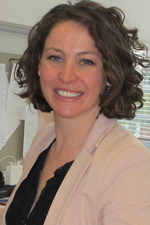
Kara Spiller, PhD
URBN Professor of Biomedical Innovation
School of Biomedical Engineering, Science and Health Systems
Email
Faculty Profile
Lab Website
Biosketch
Dr. Kara Spiller is a Professor in Drexel University's School of Biomedical Engineering, Science, and Health Systems. Her research interests include the role of immune cells in tissue repair and regeneration, the design of immunomodulatory biomaterials, and international engineering education. Her research is funded by the NIH, the NSF, and private foundations. Her awards include a Fulbright fellowship, the NSF CAREER award, and the United States Dept. of State ASPIRE prize.
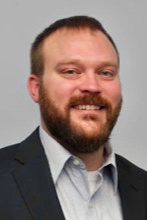
Christopher Rodell, PhD
Assistant Professor
School of Biomedical Engineering, Science and Health Systems
Email
Faculty Profile
Lab Website
Biosketch
Dr. Christopher B. Rodell is an Assistant Professor in the School of Biomedical Engineering, Health and Science Systems at Drexel University. Chris received his B.S. and M.S. degrees from Tulane University as part of the historic ‘Katrina Class’ of 2009. He went on to conduct his doctoral research at the University of Pennsylvania, working on the development and in vivo application of injectable supramolecular hydrogels. Following completion of his PhD, Chris was a postdoctoral scholar with the Center for Systems Biology at Massachusetts General Hospital and Harvard Medical School, exploring drug delivery platforms for innate immune activation and their applications toward cancer immunotherapy. To date, Chris has authored more than 40 peer-reviewed publications, 3 patent applications, and is the recipient of a number of awards, including an American Heart Association Predoctoral Fellowship, a Materials Research Society Gold Award, and the Solomon R. Pollack Award for excellence in graduate biomedical engineering research from the University of Pennsylvania, and a Hartwell Individual Biomedical Research Award.
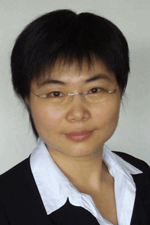
Yinghui Zhong, PhD
Associate Professor
School of Biomedical Engineering, Science and Health Systems
Email
Faculty Profile
Lab Website
Biosketch
Yinghui Zhong received her BS degree in Materials Science and Engineering, and her MS degree in Biomedical Sciences and Biotechnology from Tsinghua University in Beijing China. Dr. Zhong received her PhD from Georgia Institute of Technology in Atlanta, Georgia. Her research interests are focused on (1) developing therapies to promote regeneration and scarless wound healing after spinal cord injury, using drug delivery, hydrogel scaffold, and stem cell strategies, (2) promoting neuroprotection and immunomodulation after spinal cord injury; and (3) developing multifunctional therapeutic nanoparticles for treating cardiovascular diseases.
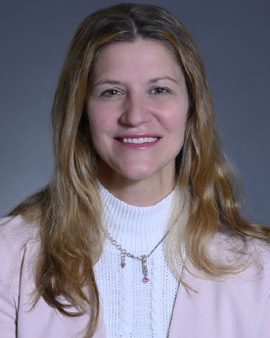
Michele Kutzler, PhD
Associate Dean for Faculty; Professor of Medicine and Microbiology & Immunology
College of Medicine, Division of Infectious Diseases & HIV Medicine, Microbiology & Immunology
Email
Faculty Profile
Lab Website
Biosketch
Michele Kutzler, PhD, is currently investigating the development of DNA vaccines, therapeutics to treat Clostridium difficile, and the immune responses of intravenous drug users. In addition, her lab processes specimens from the Division's clinical research studies. Our laboratory carries out highly translational research in the area of vaccinology, immunology and infectious disease. The laboratory aims to develop next generation optimized DNA vaccine based strategies that target antigen-specific cellular and humoral immune responses to mucosal sites.
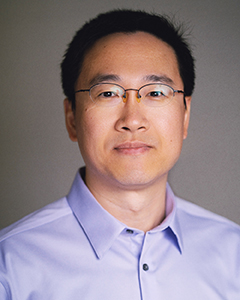
Hao Cheng
Associate Professor
College of Engineering, Department of Materials Science and Engineering
Email
Faculty Profile
Lab Website
Biosketch
Dr. Hao Cheng is an Associate Professor in the Department of Materials Science & Engineering at Drexel University. He received his B.E. and M.S. degrees in Chemical Engineering from Tsinghua University in 1999 and 2001, respectively. He completed his Ph.D. in Materials Science & Engineering from Northwestern University in 2005. Prior to joining Drexel University in 2012, he was a postdoctoral associate at Northwestern University and MIT. His laboratory focuses on cell membrane-derived hydrogels, long circulating nanoparticles, and biomaterials/biological materials for inducing antigen-specific immune tolerance. As a corresponding author, Dr. Cheng has published in journals such as ACS Nano, Nano Letters, Nature Communications, and Advanced Drug Delivery Reviews. He is a recipient of the inaugural Nano Research Young Innovators Award in Nanobiotechnology in 2018.
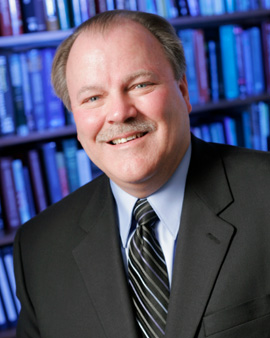
Brian Wigdahl, PhD
Professor and Chair; Director, Institute for Molecular Medicine and Infectious Disease
College of Medicine, Department of Microbiology & Immunology
Email
Faculty Profile
Lab Website
Biosketch
Dr. Wigdahl graduated from Augsburg College in Minneapolis and received his doctorate in microbiology from the Medical College of Wisconsin, followed by a postdoctoral fellowship in the Department of Microbiology at the Pennsylvania State University College of Medicine in Hershey. He held numerous appointments there, ultimately becoming a professor in the Department of Microbiology and Immunology. While at Penn State, he served as director of the interdepartmental Cell and Molecular Biology Graduate Program, and co-director of the Penn State Life Sciences Consortium Integrative Biosciences Graduate Program in Molecular Medicine. Dr. Wigdahl is currently professor and chair of the Department of Microbiology & Immunology at Drexel University College of Medicine. His research interests include: Immunopathogenesis and neuropathogenesis of HIV-1 and HTLV-I infection; transcriptional regulation of retroviral expression; viral sequence diversity and correlations to disease; development of microbicidal agents.
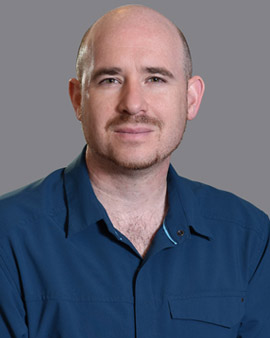
Peter Gaskill, PhD
Associate Professor
College of Medicine, Department of Pharmacology and Physiology
Email
Faculty Profile
Lab Website
Biosketch
Research in the Gaskill Lab examines the impact of drug abuse on the development of HIV-associated neurological disorders (HAND), focusing on dopamine-mediated changes in HIV infection in macrophages and on macrophage immune function. Our work has shown that dopamine increases the susceptibility of macrophages to HIV infection, at least in part through interaction with the endogenous macrophage dopaminergic system.
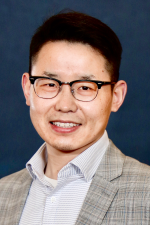
Xiao Huang, PhD
Associate Professor | Joining Summer 2023
School of Biomedical Engineering, Science and Health Systems
Biosketch
Xiao Huang received his BS degree in Nanjing Agricultural University in Biological Sciences and his MS degree in Biochemical Engineering in East China University of Science and Technology in Shanghai China. He then received his PhD degree in Chemistry and Materials at UC Santa Barbara in 2016. There he worked on the spatial control of gene regulation in human embryonic stem cells through light-responsive nanomaterials. He went on to conduct his postdoctoral research at UC San Francisco, working at the interface between biomaterials and immune engineering. One highlight from his work is the development of a robust chemistry to surface-functionalize biocompatible materials with exquisite precision for applications in immune modulation. To date, he has published first-authored papers in Nat. Nanotechnol., Adv. Mater., ACS Nano, Biomaterials, Nano letters, etc., is a co-inventor on 2 pending patents, and has received fellowships from UCSF-PBBR, Li Foundation, and CIRM. He also received the 2022 BWF BioInterfaces Rising Star Award. His future research interest is to develop innovative engineering platforms and analytical methods to advance understanding and control of immunotherapies.
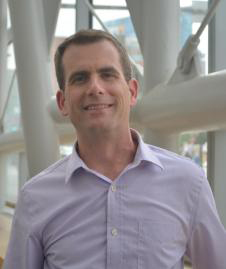
Cameron Abrams, PhD
Bartlett-Barry Endowed Professor and Department Head
Chemical and Biological Engineering
Biosketch
Cameron Abrams, PhD is Professor and Department Head of the Department of Chemical and Biological Engineering. He received a BS in Chemical Engineering from North Carolina State University in 1995 and a PhD in Chemical Engineering from the University of California—Berkeley in 2000. After two years of postdoctoral training at the Max-Planck-Institute for Polymer Research in Mainz, Germany, he joined the Department of Chemical and Biological Engineering as an Assistant Professor in 2002. Abrams’s primary research expertise lies in molecular simulations and new simulation method development, with applications ranging from new materials and fluids to drug design. He is the recipient of an ONR Young Investigator Award, an NSF CAREER Award, and was the 2015 Impact Award Winner in the Computational Molecular Sciences and Engineering Forum of the American Institute of Chemical Engineers. In additional to novel molecular simulation methods, Abrams’s research interests include high-performance materials, protein-related kinetics and thermodynamics, and HIV-1 entry inhibitor design.
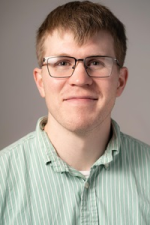
Peter Deak, PHD
Professor
Chemical and Biological Engineering
Biosketch
Dr. Peter Deak is an assistant professor of Chemical and Biological Engineering who joined the department in August 2022. He received his BS in Chemical Engineering from the University of Dayton (Dayton, OH) and his MS in Chemical Engineering and PhD in Bioengineering from the University of Notre Dame working under Dr. Basar Bilgicer. His PhD work was designing novel diagnostics and therapeutics for food allergies. After his PhD, Dr. Deak worked in the Pritzker School of Molecular Engineering at the University of Chicago working under Dr. Aaron Esser-Kahn, investigating novel subpopulations in innate immune cells. His research at Drexel focuses on using as minor as possible chemical modulation of innate immune cells to facilitate antigen specific tolerance. More specifically the Deak group designs nano-formulations to modulate innate immune cells as potential therapeutics for autoimmune diseases and transplantation rejection. The Deak group also works on diagnostics for autoinflammatory diseases and targeted adjuvants to generate antigen specific immunity of chronic viral infections (Hepatitis, HIV, ect.)
Education:
- PhD, Bioengineering, University of Notre Dame, 2017
- MS, Chemical Engineering, University of Notre Dame, 2016
- BS, Chemical Engineering, University of Dayton, 2012
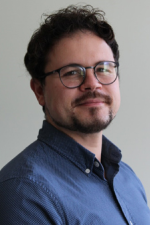
Gabriele Romano, PHD
Assistant Professor
Pharmacology & Physiology
Biosketch
Gabriele Romano, PhD, is an assistant professor in the Department of Pharmacology & Physiology at Drexel University College of Medicine.
Research Interests
Cancer drug resistance; tumor suppressor genes; immune evasion; chemokine signaling; computational biology; functional genomics; HIV and cancer; nanoparticle-mediated drug delivery. Research in the Romano lab is focused on studying cancer drug resistance using a conjunction of mouse modeling, functional genomics and computational biology. We study intrinsic and acquired molecular mechanisms by which tumor cells resist targeted and/or immunotherapy approaches, with the final aim of developing novel therapeutic strategies for cancer patients.
Education:
- PhD - Molecular and Translational Medicine, University of Milan, Bicocca (2015)
- MS - Medical Biotechnology, University of Milan, Bicocca (2012)
- BS - Biotechnology, University of Milan, Bicocca (2010)

